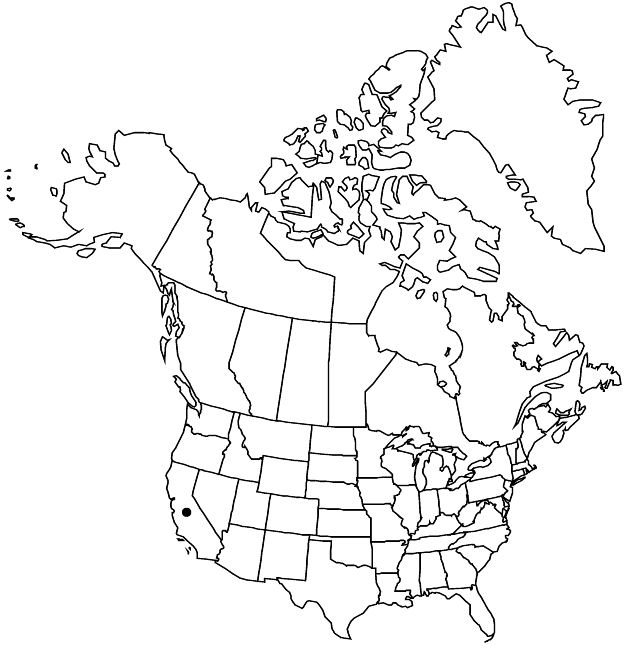Rhamnus crocea
Fl. N. Amer. 1: 261. 1838.
Shrubs, 1.2–2(–4) m, usually armed with thorns. Branchlets reddish to red-purple or orange-brown; glabrous. Leaves persistent, alternate; petiole 2–6 mm; blade usually dull green abaxially, shiny dark green adaxially, elliptic to obovate or ovate, 0.7–2 cm, distinctly coriaceous, base cuneate to truncate, margins coarsely serrate, spinulose-serrulate, or entire, apex obtuse to emarginate, both surfaces glabrous; secondary veins 5–7 pairs, all diverging at nearly same angle. Inflorescences fascicles or flowers solitary. Pedicels 2–3 mm. Sepals 4(–5). Petals 0. Drupes red, globose, 5–8 mm; stones 2.
Phenology: Flowering (Jan–)Mar–May.
Habitat: Dry washes and canyons, coastal and inland dunes, alluvial fans, gravel flood plains, disturbed sandy flats, brushy slopes, steep granitic slopes, woodlands, coastal sage scrub, chaparral.
Elevation: 50–1200 m.
Discussion
Rhamnus crocea and closely related species were considered conspecific by C. B. Wolf (1938), who treated those in the flora area as subspp. crocea, ilicifolia, pilosa, and pirifolia; he also recognized subsp. insula (Kellogg) C. B. Wolf from Mexico (Baja California). The taxa are distinctive, but intermediates exist. Wolf identified R. crocea/ilicifolia intermediates from Marin County to the California/Mexico boundary, and R. ilicifolia/insula, R. crocea/pilosa, and R. ilicifolia/pilosa intermediates in southern California, especially in San Diego County.
Arizona plants (Pima County, especially in the Ajo Mountains) identified as Rhamnus crocea (for example, K. Christie 2006) appear to be populational variants of the single species present there, R. ilicifolia (R. Felger, pers. comm.). In California, where the two are sympatric over a relatively broad region, R. crocea is distinct from R. ilicifolia in usually bearing thorns and in having smaller leaves with less spinulose margins.
Selected References
None.
